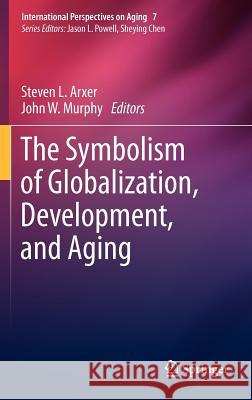The Symbolism of Globalization, Development, and Aging » książka
The Symbolism of Globalization, Development, and Aging
ISBN-13: 9781461445074 / Angielski / Twarda / 2012 / 170 str.
The Symbolism of Globalization, Development, and Aging
ISBN-13: 9781461445074 / Angielski / Twarda / 2012 / 170 str.
(netto: 383,36 VAT: 5%)
Najniższa cena z 30 dni: 385,52
ok. 16-18 dni roboczych.
Darmowa dostawa!
As globalization transforms our daily lives, it is also shaping our lives -- and our identities -- in the long term. For many older people, this includes becoming alienated from themselves and pessimistic about a future that expects them to decline and decay like products with a shelf-life. The Symbolism of Globalization, Development, and Aging sets out a provocative case for more socially conscious approaches to aging. Rather than merely critiquing the emerging youth-oriented global culture, the book reveals and refutes the assumptions that fuel global market ideals and stereotype the experience of aging to a specific set of developments. Its contributors argue that the social imagery of globalization normalizes longstanding inequities, particularly between generations, and marginalizes those who don't conform to its narrow confines. Running throughout these chapters is the strong assertion that reality is diverse, and that understanding the power of global forces will promote alternative contexts for more authentic aging. Thus the challenge is to professionals working with elders to look beyond the biomedical model that characterizes much of their fields. Featured topics include: * Body image symbolism and global concepts of aging. * The life-course perspective: defeating its purpose? * The human body and the corporate template of identity. * Technology: the dark side of the new and now. * Globalization ethics and the domination of youthfulness. * Reconceptualizing aging: toward a post-market future. The Symbolism of Globalization, Development, and Aging is a breakthrough volume across disciplines which will inspire a higher level of thinking, discussion, and improvement in policy and practice among gerontologists, sociologists, health and cross- cultural psychologists, and public health policymakers.











